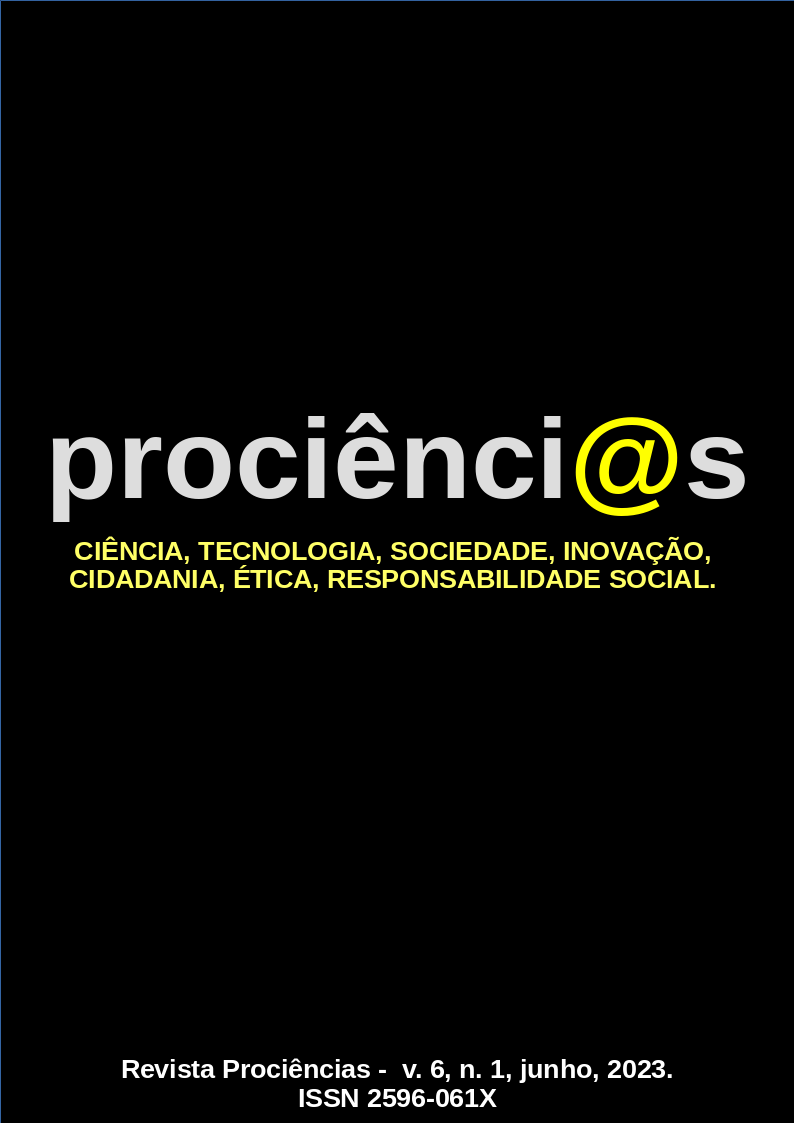COMPETENCY ASSESSMENT IN GENERAL CHEMISTRY: RUBRIC INCIDENCE IN METACOGNITION PROCESS
Abstract
Metacognition as the ability for self-knowledge, monitoring, regulation and organization of mental operations, becomes relevant in Higher Education for academic achievement. The aim of the project was to transform the evaluation practices at the university level in the area of Chemistry to strengthen the teaching-learning process and students’ performance as an outcome indicator, through the implementation of assessment rubrics formulated by competencies. The research was carried out at the University of La Sabana, Bogotá-Colombia, with a population of 145 students, of which 119 were part of the Control group and 26 of the experimental group. The work consisted of socializing and implementing the rubric as an evaluation tool, so that teachers recognized their objectivity and students could internalize, appropriate and interpret it as the educational tool that allowed them to be aware of their learning. The results obtained when applying the Mann-Whitney U test indicate that the experimental group, which experienced a metacognition process, obtained a significantly higher grade. It is concluded that the implementation of rubrics for the competency-based evaluation process favors the metacognitive process of students, especially in knowledge self-management, granting them protagonism in their learning through autonomy, promoting cognitive processes based on awareness of the evaluative process for learning.
Downloads
References
ALARCÓN, J.; HILL, B.; FRITES, C. Educación basada en competencias: hacia una pedagogía sin dicotomías. Educação e Sociedade. 35 (127), 569-586, 2014. Disponible en: <10.1590/S0101-73302014000200013>. Acceso en: 19 feb.2022.
AZEVEDO, R. Reflections on the field of metacognition: issues, challenges, and opportunities. Metacognition Learning 15, 91–98, 2020. Disponible en: < https://doi-org.ezproxy.uan.edu.co/10.1007/s11409-020-09231-x>. Acceso en: 19 feb.2022.
BÁEZ-ALCAÍNO, J.; ONRUBIA-GOÑI, J. Una revisión de tres modelos para enseñar las habilidades de pensamiento en el marco escolar. Revista perspectiva educacional. Formación de profesores, 2016, 55(1), 94-113, 2016. Disponible en: <10.4151/07189729-Vol.55-Iss.1-Art.347>. Acceso en: 19 feb.2022,
CALZADA, J. La técnica de las frases incompletas: revisión, usos y aplicaciones en procesos de orientación vocacional. 2004. Disponible en: < https://www.psi.uba.ar/academica/carrerasdegrado/psicologia/sitios_catedras/obligatorias/042_ttedm2c2/material/fichas/tecnica_de_las_frases_incompletas.pdf>. Acceso en: 19 feb.2022.
CAVALCANTE-PIMENTEL, F; MORAIS-MARQUES M.; BARBOSA-DE-SALES-JUNIOR, V. Estrategias de aprendizaje a través de los juegos digitales en un contexto universitario. Comunicar, 73, 83-93, 2022. Disponible en: <
COROMINAS, E. Competencias genéricas en la formación universitaria. Revista de educación. 325, 299-321, 2001. Disponible en:
DE LA CRUZ, G.; ABREU, L. F. Rúbricas y autorregulación: pautas para promover una cultura de la autonomía en la formación profesional terciaria. REDU: Revista de Docencia Universitaria, Número monográfico dedicado a Evaluación formativa mediante Erúbricas 12, 31-48, 2014. Disponible en:
EMBLETON, S. B. Análisis de la metacognición. Ciencia Latina Revista Científica Multidisciplinar, 7(1), 512-520, 2023. Disponible en:< https://doi.org/10.37811/cl_rcm.v7i1.4410>. Acceso en: 19 feb.2022
ESCALANTE, A. E., CORONADO, S. E. Y MOCTEZUMA, E. E. La dimensión metacognitiva de la competencia aprender a aprender en titulaciones españolas. Sinéctica, Revista Electrónica de Educación, 60, e1457, 2023. Disponible en:< https://sinectica.iteso.mx/index.php/SINECTICA/article/view/1457/1550>. Acceso en: 19 feb.2022.
FLORES, V. G. Metacognición y educación liberadora: Componentes Esenciales para la Formación Integral en Educación Primaria. Revista multidisciplinaria dialógica, 4-17, 2015. Disponible en: < https://dialnet.unirioja.es/servlet/articulo?codigo=6224429>. Acceso en: 19 feb.2022.
FRAILE, J.; PARDO, R.; PANADERO, E. ¿Cómo emplear las rúbricas para implementar una verdadera evaluación formativa?. Revista Complutense de Educación, 28 (4), 2017, 1321-1334. Disponible en:< https://doi.org/10.5209/RCED.51915>. Acceso en: 02 nov. 2022.
GAMBOA-MORA, M.; SANDOVAL-GARCÍA, Y.; AHUMADA-DE LA ROSA, V. Diseño de ambientes de Enseñanza-Aprendizaje: Consideraciones con base en la PNL y los Estilos de Aprendizaje. Sello Editorial Universidad Nacional Abierta y a Distancia. Disponible en: < https://doi.org/10.22490/9789586516112>. Acceso en: 19 feb.2022.
GLASER, R. & BASSOK, M. Learning theory and the study of instruction. Learning research and development center: University of Pittsburgh, 1989.
GURAT, M. G.; MEDULA-JR, C. T. Metacognitive Strategy Knowledge Use through Mathematical Problem Solving amongst Pre-service Teachers. Magazine American Journal of Educational Research. 4 (2), 170-189, 2016. Disponible en: < http://www.scieducationalresearch.com/articles/4/2/5>. Acceso en: 19 feb.2022.
KLEITMAN S.; NARCISS S. Introduction to the special issue “applied metacognition: real-world applications beyond learning. Metacognition and Learning, 14, 335–342, 2019. Disponible en: < https://doi.org/10.1007/s11409-019-09214-7>. Acceso en: 19 feb.2022.
MORCELA, O. Desarrollo y validación de una rúbrica para la evaluación de competencias genéricas. In: MASSA, S.; MORO, L.; BACINO, G. Aprender con Tecnologías Estrategias de Abordaje. Universidad del Mar de la Plata, v. 1. p. 107-118, 2015. ISBN 978-987-544-675-5.
OCDE. Grupo Definición y Selección de Competencias. Conclusiones del periodo 1998-2002, París, 2002.
OCDE. Habilidades y competencias del siglo XXI para los aprendices del nuevo milenio en los países de la OCDE, París, 2010.
OSSES, S.; JARAMILLO, S. Metacognición: un camino para aprender a aprender, Revista Estudios Pedagógicos XXXIV, 1, 187-197, 2008. Disponible en: < http://dx.doi.org/10.4067/S0718-07052008000100011>. Acceso en: 19 feb.2022.
PÉREZ, H. G., Y SEVERICHE, C. A. (2023). Desarrollo del pensamiento crítico, los procesos metacognitivos y motivacionales para una educación de calidad. Revista Latinoamericana Ogmios, 3(6), 113–118, 2023. Disponible en:
RICARDO-FUENTES, E. L., ROJAS-MORALES, C. E. Y VALDIVIESO-MIRANDA, M. A. Metacognición y resolución de problemas matemáticos. Tecné, Episteme y Didaxis: TED, (53), 2023. Disponible en:< https://doi.org/10.17227/ted.num53-14068>. Acceso en: 02 nov. 2022.
SILVA, W.S. Rúbricas: un instrumento para el desarrollo de la conciencia metacognitiva del docente. Universidad de Caldas, 2022. Disponible en:
TOBÓN, S. Formación Basada en Competencias. Bogotá, 2007.


